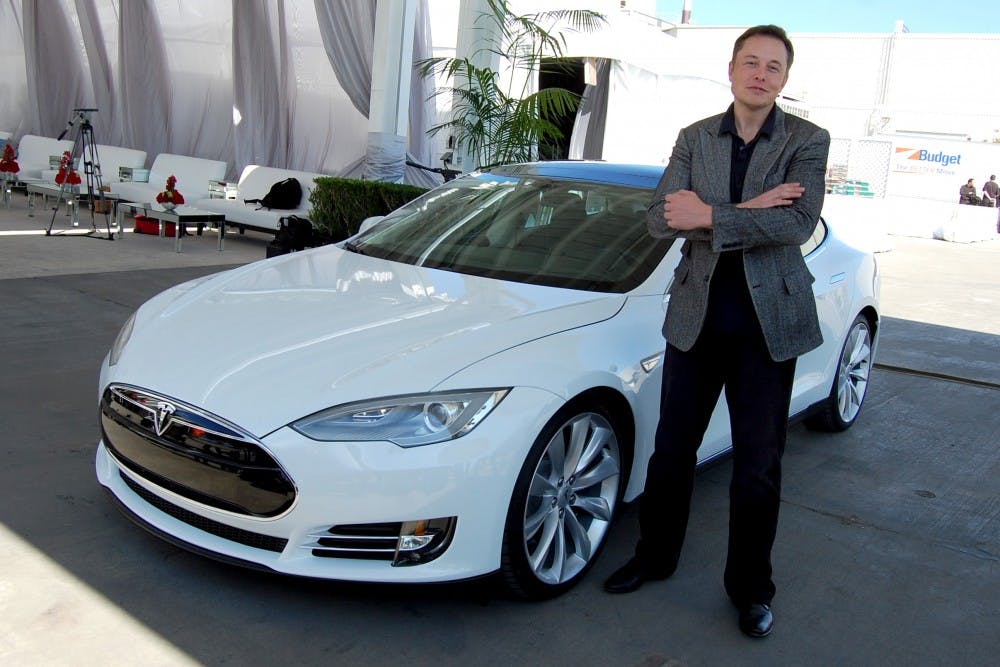
Elon Musk, the 1997 Wharton and College graduate who has been dubbed by Robert Downey Jr. as the real-life Iron Man, may have outdone even Iron Man with his latest creation.
Musk, CEO of Tesla Motors, is the mastermind behind one of the biggest product launches this year. The Powerwall, a wall-mountable consumer battery, is the first product in the Telsa Energy suite, the company’s venture into the energy business. The Powerwall not only provides sustainable energy but also shifts control to the consumer, Wharton professor Ruben Lobel said.
The Powerwall battery is designed to store energy from the grid and be a backup for resident and commercial users during grid outages. It was originally planned to store seven kilowatt-hours of energy and 10 kilowatt-hours of energy at prices of $3000 and $3500 respectively — excluding inverter and installation costs — and delivered the energy at an average of two kilowatts per hour.
However, after recently receiving shareholder feedback, Musk has almost doubled the power output to five kilowatts per hour, while keeping the price the same. Using the original costs, Deutsche Bank calculated that the Powerwall would be able to provide energy at $500 per kilowatt hour, which is less than half of current costs for electricity.
The batteries generated a revenue of $800 million in the first week after their release to the public and are already sold out until mid-2016.
“The paradigm shift we are seeing now is that consumers have stopped being this dumb agent, where they receive a fixed electricity price and then consume at will,” Lobel said.
Lobel explained that the battery will allow for a smarter consumer because consumers will not only be able to respond to grid outages but will also be able to determine consumption during high-energy and low-energy hours. Consumers could bank grid energy during high-energy hours and use it during low-energy hours to save money instead of simply complying with fixed energy rates.
Although the idea of using storage batteries for residential and commercial buildings has been present for years, Lobel said a key question will be whether or not Tesla’s product can provide energy at an affordable price, in an efficient package.
Lobel also mentioned that increasing production could help with the pricing process, allowing more consumers to easily adopt the use of storage batteries. Tesla is already working on the construction of a $5 billion Gigafactory in Nevada, which is planned to open in 2017 and will produce the batteries for their cars alongside the Powerwall and Powerpack, a smaller rechargeable energy storage battery. However, he said that demand will likely vary by market and will depend on the local regulations in the areas that the products are sold.
“Tesla is not just an automotive company, it’s an energy innovation company,” the company’s business statement says. “Tesla Energy is a critical step in this mission to enable zero emission power generation.”
The Daily Pennsylvanian is an independent, student-run newspaper. Please consider making a donation to support the coverage that shapes the University. Your generosity ensures a future of strong journalism at Penn.
DonatePlease note All comments are eligible for publication in The Daily Pennsylvanian.





